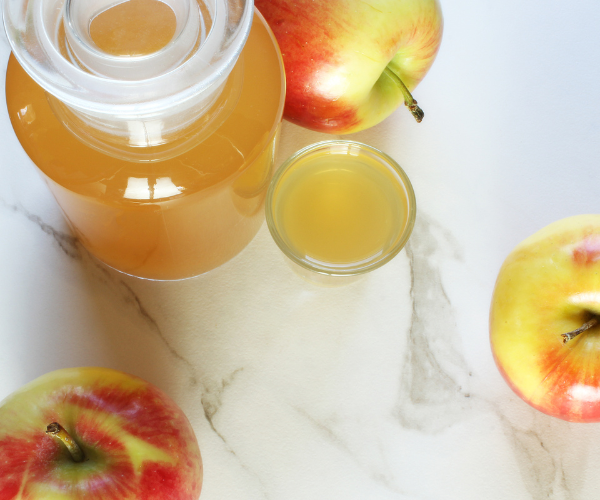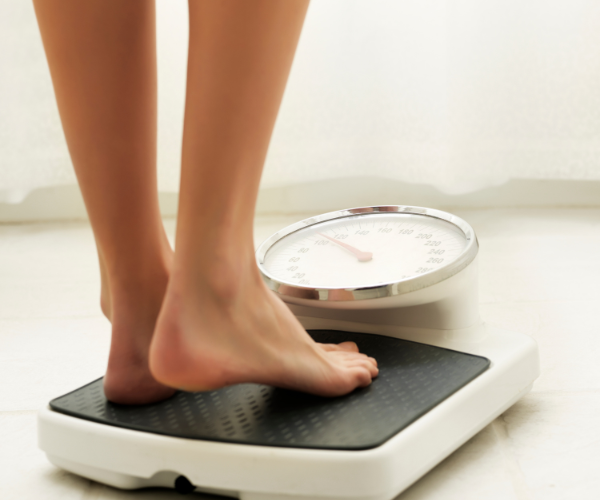With summer in full swing, juice detoxes, gluten-free cleanses, and 14-day bikini body diets are everywhere. We all know someone who has tried one if we haven’t ourselves. While it may initially seem great that people want to improve their “health” for a variety of reasons, usually the real motivator is society’s claim that thinner is always better, that fatness, in any form, is bad and that the only way to be happy is to get thin through intense, short-term, magical solutions. This is diet culture at work.
Diet culture is a collective set of societal expectations that value “weight, shape and size over health and well-being, and paints being thin as morally good, being fat as morally bad,” according to dietitian Carrie Dennett.
But here’s the thing; these detoxes, diets, and cleanses themselves are the biggest thing we need to detox from our lives.
 Even if we’re not on a diet ourselves, we can still be caught up in its culture with phrases and signals we see and hear all the time such as, “you look good, did you lose weight?” or labeling the act of eating something as “naughty/sinful.” Even before and after pictures highlight our fear of being treated as a fat (aka “bad” or “lesser”) person. However, thinness and health are not the same, fatness and unhealthy don’t necessarily equate either. Above all, a person is not superior to another based on how they look. This pressure and herding towards a specific, unrealistic image of a body and quick fixes to get there is purely diet culture’s marketing and profit, and it’s been working.
Even if we’re not on a diet ourselves, we can still be caught up in its culture with phrases and signals we see and hear all the time such as, “you look good, did you lose weight?” or labeling the act of eating something as “naughty/sinful.” Even before and after pictures highlight our fear of being treated as a fat (aka “bad” or “lesser”) person. However, thinness and health are not the same, fatness and unhealthy don’t necessarily equate either. Above all, a person is not superior to another based on how they look. This pressure and herding towards a specific, unrealistic image of a body and quick fixes to get there is purely diet culture’s marketing and profit, and it’s been working.
 Diet culture is a $72 billion-dollar industry, with an estimated 45 million Americans dieting every year. Yet, research shows that dieting doesn’t work, that 95% will regain all the weight back in 1-5 years, and that dieting is actually a predictor of weight gain in a person’s future. In addition, falling short of these unrealistic expectations can lead to mental health and eating disorder behaviors, with 35% of “normal dieters” progressing to pathological dieting and a further 20-25% of those individuals developing eating disorders.
Diet culture is a $72 billion-dollar industry, with an estimated 45 million Americans dieting every year. Yet, research shows that dieting doesn’t work, that 95% will regain all the weight back in 1-5 years, and that dieting is actually a predictor of weight gain in a person’s future. In addition, falling short of these unrealistic expectations can lead to mental health and eating disorder behaviors, with 35% of “normal dieters” progressing to pathological dieting and a further 20-25% of those individuals developing eating disorders.
So, how do we “detox” from diet culture and really take care of ourselves?
The answer is simple, yet difficult: identify and resist diet culture in our lives and re-learn to trust our bodies, much like trusting ourselves to learn to cook and reconnect with our food. First, it’s okay if you don’t always say the right things or didn’t realize you were contributing to this culture. But we can learn moving forward, so here’s a quick table of common toxic phrases and traps to identify.
 Second, relearning to trust and respect our bodies is a deceivingly difficult task. It can generally be summed up under the idea of intuitive eating (see below), but like all relationships, it’s an ongoing one that requires work. This is especially true in the beginning when the body recalibrates from a restricted, craving state that’s prone to overeating or high levels of stress and insecurity that comes from being a victim of diet culture. However, when we’re able to gradually turn off diet culture messaging for ourselves, food becomes just food, and we can prioritize our body’s knowledge of itself and what it needs over the external rules that aren’t even personalized to us and our daily lives. Like I said, deceptively difficult, so give yourself wiggle room and forgiveness too. Just remember that this means we can learn to enjoy all types of food again, that honor our heritage, that we’ve never tried before, that we create new memories with (I mean, can you imagine inviting a friend to take our Virtual Macaron Workshop with you?), and ultimately learn to freely enjoy and respect ourselves and others.
Second, relearning to trust and respect our bodies is a deceivingly difficult task. It can generally be summed up under the idea of intuitive eating (see below), but like all relationships, it’s an ongoing one that requires work. This is especially true in the beginning when the body recalibrates from a restricted, craving state that’s prone to overeating or high levels of stress and insecurity that comes from being a victim of diet culture. However, when we’re able to gradually turn off diet culture messaging for ourselves, food becomes just food, and we can prioritize our body’s knowledge of itself and what it needs over the external rules that aren’t even personalized to us and our daily lives. Like I said, deceptively difficult, so give yourself wiggle room and forgiveness too. Just remember that this means we can learn to enjoy all types of food again, that honor our heritage, that we’ve never tried before, that we create new memories with (I mean, can you imagine inviting a friend to take our Virtual Macaron Workshop with you?), and ultimately learn to freely enjoy and respect ourselves and others.
- Reject the diet mentality: read above if you skipped to the bottom of this article.
- Honor your hunger: Your body is biologically built to adequately feed itself with nutrients. It’s the harmful reinforcement of diet culture that causes uncontrollable cravings, feelings of deprivation, and self-shaming that leads us to over or under feed ourselves. We also feel more full when we include a variety of nutrients such as these Greek beef and pepper kebabs with potatoes and feta that we’ll be doing on our virtual Sunday Dinner on the Grill class on Sunday, July 17th!
- Feel your fullness: Listen to your body for signals and trust that you’ll give yourself the foods you desire and need in the future.
- Respect your body: biology and genetics are complex with no body being the same as another, so it’s unrealistic to think you’ll look the same as anyone else. Resist criticizing your body size and shape and remember that your body has carried you through everything in your life and that’s beautiful.
- Movement: Fitness and exercise are not a punishment for what you ate that day. Metabolically, it doesn’t even work that way. Shift your focus to how movement feels for your body, such as energizing or relaxing.
- Progress, not perfection: Your overall health is not determined by one thing you ate in a day. You don’t have to eat perfectly to be healthy. In fact, there is not a “superior” way to eat, no “clean” eating, only eating to honor yourself consistently over time.












